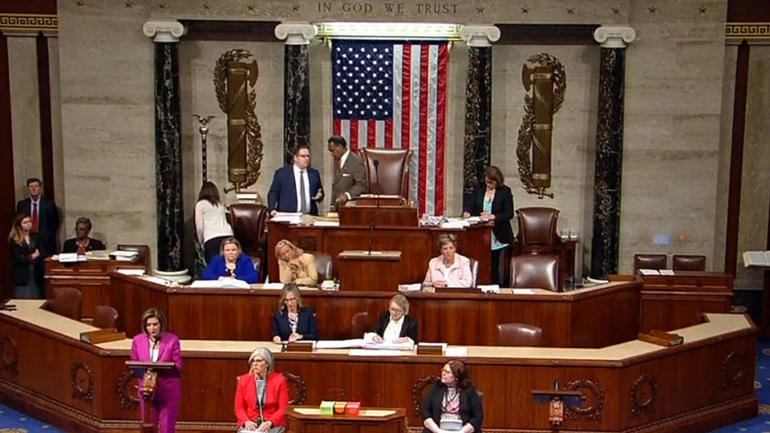There was a growing backlash after U.S. President Donald Trump’s racist attacks on four female lawmakers. The House of Representatives voted YES on a resolution condemning his remarks.
Four members of the president’s own party backed the motion. Trump claims he’s not a racist. CGTN White House Correspondent Nathan King reported on that and a new strict rule for migrants seeking asylum.
Not backing down, U.S. President Donald Trump defended himself with a social media post stating “I don’t have a Racist bone in my body!” That before House Democrats held a vote criticizing the president for telling four women of color – all of whom are U.S. citizens – to go back to their country of origin.
Trump had succeeded in uniting his political opponents and making it more difficult for his fellow Republicans to defend their leader.
Beyond the world of Washington politics, there were also real-world consequences. Migrants from Central America must now seek asylum from other countries, first, before seeking refuge in the United States. Those who fail to do so will face deportation.
On the streets of El Salvador’s capital, San Salvador, concern for fellow countrymen fleeing violence. “That would be a setback, because he’s denying entry to other people who might be fleeing because of social problems that, in our case, are the gangs,” one Salvadoran said.
The so-called third-country rule implemented by Washington Tuesday will stop many migrants from being able to make the journey through Mexico to the U.S. southern border.
The policy will likely face legal challenges. Both Mexico and Guatemala already say they will not co-operate with Washington. The United Nations Refugee Agency is also highly critical of the move.
“The point about this measure is that we believe it really puts vulnerable people at risk, vulnerable families,” Elizabeth Throssell, chief spokesperson of the UN refugee agency (UNHCR), said. “And it is also undermining efforts across the region to devise a response that is coherent and collective.”
The new U.S. asylum policy was expected to strand thousands more people at the U.S. border, swelling the ranks of those already waiting for their cases to be heard. The White House hoped the new rule will have a deterrent effect, convincing many more thousands not to attempt the journey in the first place.
Rafael Bernal on U.S. President Trump’s immigration changes
CGTN’s Elaine Reyes talks to Rafael Bernal about the House hearing to condemn Trump and his changes to the asylum policy.
 CGTN America
CGTN America

